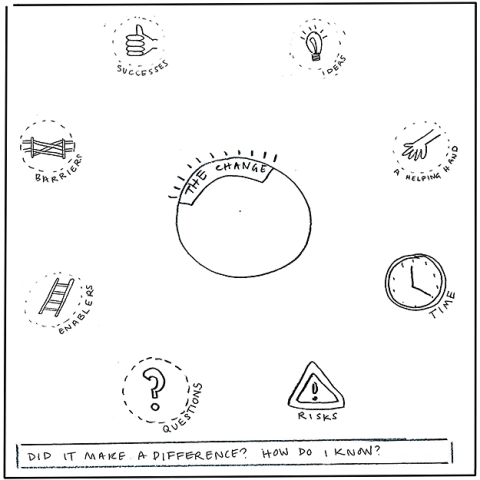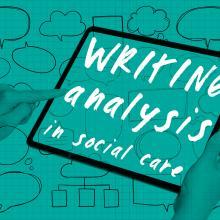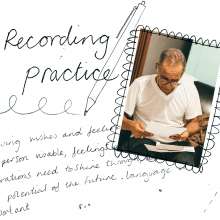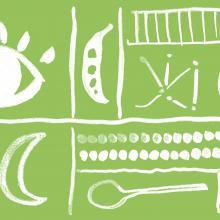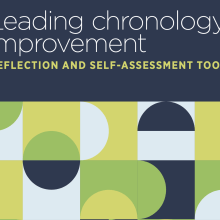We asked participants at the end of each workshop to comment on their main learning for the afternoon, how things had gone, and what we could do differently next time. In addition at the end of Workshop Three we undertook a longer reflection and review of the project. Overall the participants were very positive about their involvement, and this reflected the energy and commitment that they’d given to the three sessions.
What’s been good about the project?
“Making people feel valued by asking them for their views to take back as part of Iriss work”
“Because of this workshop I found myself thinking more about what and how I write.”
“It was an opportunity to talk about an aspect of our work that we usually perform uncritically/automatically”
“Spending a wee bit more time thinking will mean less time doing so making changes can be beneficial”
What resonates most for you now?
- Realising we do some things really well!
- How much thought we should put into what we record
- Remembering the future reader
- Evidencing decision making
- Recording in a person centred way
- Reflecting on my own practice
- Taking back messages to NSQWs who are always very worried about ‘doing it right’
- Prioritising chronologies
Challenges encountered
- Making time to attend all 3 days
- Time management but taking more time when recording has been beneficial for my practice
- Implementing change takes time — everyday stuff takes priority
- Identifying that I can do things better and taking on board small changes I can make
- Some barriers of different understandings of things across teams
- Sometimes I’ve been confusing case notes with assessments and thinking about what needs to be in both
- Breaking down the decision making process — as we do so much on autopilot
We also have learning points about the process of working in the way that we did, gathered from facilitator reflections and participant feedback. In summary these are:
- Recognising complexity in a mixed service group
- Critical reflection
- Expect tensions or conflict to arise, and facilitate supportively
- Practitioners value hearing from other services
- Time is a factor in a variety of ways
- Permission to test ideas
-
Recognising complexity in a mixed service group: We found that as a group it was important to recognise complexity when talking about recording for a variety of purposes and in a range of settings, but not get stuck at the points where there were service-specific differences. It became apparent in the first workshop that working on some activities in service groups and then feeding back for wider group discussion would be the most effective way to identify and build on points of commonality, while also highlighting the points where different approaches to recording among services could create challenges.
-
Critical reflection: This approach is grounded in critically reflective practice. At all stages participants were engaged in activities to reflect on their own practice, but also that of teams and cultures, looking at how things are now, how they could be, and ways to get there. In a mixed service group, where people have different roles and training backgrounds, some people may be more, or less, comfortable and accustomed to thinking in this way. The set up and delivery of activities needs to take this into account and is something that benefits from checking in on over the project.
-
Expect tensions or conflict to arise, and facilitate supportively: we asked participants to reflect on and test changes to an element of practice that is routine, but also very personal, and central to evidencing how they work with people and make professional decisions. This surfaced points of tension. This came from cross-service questioning about ‘best practice’ or approaches taken by other teams or agencies, as well as from discussions with colleagues in similar roles. It was perhaps to be expected that some people would respond defensively or feel threatened if their ‘way’ was challenged — either by direct questioning or by new ideas generated or discussed by the wider group.
Also, as one practitioner reflected in their testing, discussion and thinking can lead to reflection that maybe the tools that they use are not as ‘good practice’ as they may previously have thought, which can lead to uncertainty about how to go forward. From a facilitation perspective, it was important to recognise this and also reinforce a framing of learning not criticism in group discussions.
-
Practitioners value hearing from other services: Participants commented widely on the value of hearing from other services as a way of increasing their understanding about the culture and practices of these services, and that it was helpful to know that colleagues encounter similar challenges with recording across their teams and services.
-
Time: Time was a factor in a number of ways. Within the workshops this came up as a challenge when factoring in space to account for explaining terms or practices that practitioners from other services were not familiar with. Many participants reflected that taking more time to reflect, plan and write differently was a difficulty but it was balanced with feeling that it was making a positive difference to their recording. “Time can be an issue but the more you put an idea in to practice the less time is taken to action it” (from evaluation feedback).
-
Permission to test ideas: this feedback came from a number of workshop participants who felt it was really important that managers (both at service and senior management level) were supportive. This gave a sense of permission to experiment and try out ideas, which in turn enhanced a sense of ownership and professional confidence. Supervision was also mentioned as having an important role for reflecting on tests of change and recognising it as important work.
Future directions
The tool based on the work in this project is in process and will be published after further development. Iriss will be continuing recording practice work in 2020/21 with new partners and seeking to make further connections nationally to link out to other work ongoing in related areas, such as records access and management. To talk about anything in connection to this project or future work, please contact Louise Bowen.
